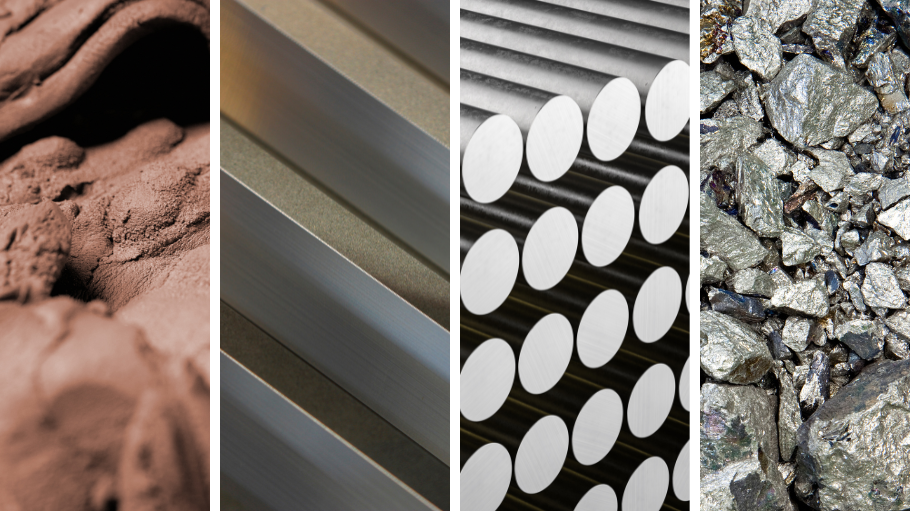
Joint Industry statement: European industries urge policymakers to fully consider sectoral challenges as the EU-India FTA talks conclude
Joint Industry statement: European industries urge policymakers to fully consider sectoral challenges as the EU-India FTA talks conclude
Downloads and links
Recent updates

Brussels, 27 November 2025 - The European ceramic, aluminium, ferro-alloys and steel industries express their deep concern about the potential impact of the EU-India FTA on strategic European industries if a sector-specific approach is not adopted and our sectors’ challenges are not duly considered.
European manufacturers fully support open and rules-based trade and acknowledge the reinforced need for trade diversification following the reintroduction of US tariffs. However, this cannot come at the expense of the EU’s industrial base.
Benefitting from cheap access to abundant resources, state support (1) and export oriented strategies, India is significantly raising its industrial production capacity (2) (3), reinforcing existing overcapacities with excess output likely to be redirected abroad, including to Europe (4). In addition, substantial gaps remain between EU and Indian social, environmental, and climate regulatory frameworks, which risk creating further competitive distortions. Concluding an agreement without safeguarding sectors exposed to unfair competition and addressing regulatory asymmetries would expose European industries to severe market distortions and endanger their future viability in Europe.
As the EU-India FTA negotiations draw to a close, the co-signatories urge policymakers to fully take into account our sectors’ challenges to ensure complete alignment between European industrial, trade, and climate policies.
The co-signatories also firmly oppose any exemption or preferential treatment for India under the EU Carbon Border Adjustment Mechanism (CBAM), whose integrity and effectiveness must remain non-negotiable. Granting privileges to CBAM would directly contradict the EU’s climate ambitions, penalise responsible producers in Europe, and reward production under lower standards abroad. Likewise, the agreement should refrain from granting any exemptions to other EU environmental legislation, while including robust sustainability and labour provisions.
European ceramics, steel, ferro-alloys, and aluminium producers are investing heavily in innovation, decarbonisation and recycling to meet European climate, competitiveness and circular economy objectives. A trade agreement that fails to ensure reciprocity and equivalent conditions would jeopardise these efforts and pose a serious risk to Europe’s industrial base.
The signatories urge policymakers to safeguard the level playing field, uphold the integrity of EU trade and climate policies, and refrain from concluding any agreement that undermines Europe’s strategic industries.
(1) Release of the Aluminium Vision Document, Indian Ministry of Mines.
(2) Indian government roadmaps envision aluminium production capacity to expand to 12 MT by 2030, 25 MT by 2040, and 37 MT by 2047. See Release of the Aluminium Vision Document, Indian Ministry of Mines.
(3) According to the analysis carried out by the OECD Steel Committee (November 2025), if all announced capacity projects come to fruition, steel-making capacity in India could reach 205 mmt by the end of 2025, nearly double the level recorded in 2015, and increase to around 300 mmt by 2030. Most of the new capacity additions would concern the higher CO2-intensive BOF route.
(4) Imports of ceramic tiles (HS 6907) originating from India increased by 146% in the last five years, despite existing antidumping duties.
Contact
Lucia Sali, Spokesperson and Head of Communications, +32 2 738 79 35, (l.sali@eurofer.eu)
About the European Steel Association (EUROFER)
EUROFER AISBL is located in Brussels and was founded in 1976. It represents the entirety of steel production in the European Union. EUROFER members are steel companies and national steel federations throughout the EU. The major steel companies and national steel federation of Turkey, Ukraine and the United Kingdom are associate members.
The European Steel Association is recorded in the EU transparency register: 93038071152-83.
About the European steel industry
The European steel industry is a world leader in innovation and environmental sustainability. It has a turnover of around €215 billion and directly employs around 298,000 highly-skilled people, producing on average 146 million tonnes of steel per year. More than 500 steel production sites across 22 EU Member States provide direct and indirect employment to millions more European citizens. Closely integrated with Europe’s manufacturing and construction industries, steel is the backbone for development, growth and employment in Europe.
Steel is the most versatile industrial material in the world. The thousands of different grades and types of steel developed by the industry make the modern world possible. Steel is 100% recyclable and therefore is a fundamental part of the circular economy. As a basic engineering material, steel is also an essential factor in the development and deployment of innovative, CO2-mitigating technologies, improving resource efficiency and fostering sustainable development in Europe.

Brussels, 26 February 2026 — Europe’s steel industry has warned that the current draft Industrial Accelerator Act could direct public support for low-carbon steel to producers outside the European Union, unless lawmakers include and tighten ‘Made in Europe’ provisions.
Brussels, 24 February 2026 - Europe’s energy-intensive industries have set out a series of proposals to ensure that the EU’s upcoming Electrification Action Plan delivers on its objectives to stimulate and boost electricity consumption in industry. In a joint position paper, industries warn that persistently high electricity prices risk undermining industrial competitiveness and decarbonisation efforts. They call for a policy framework that will enable EU industry in pursuing decarbonisation and industrial competitiveness.
Energy-intensive industries (EIIs) provide direct employment to around 2.6 million people in the EU and represent the foundations of critical and strategic value chains for the EU economy and society. The current economic and energy outlook of the European Union is making investments in electrification and the continued business operation of our sectors at serious risk, should the energy-cost challenge not be solved.